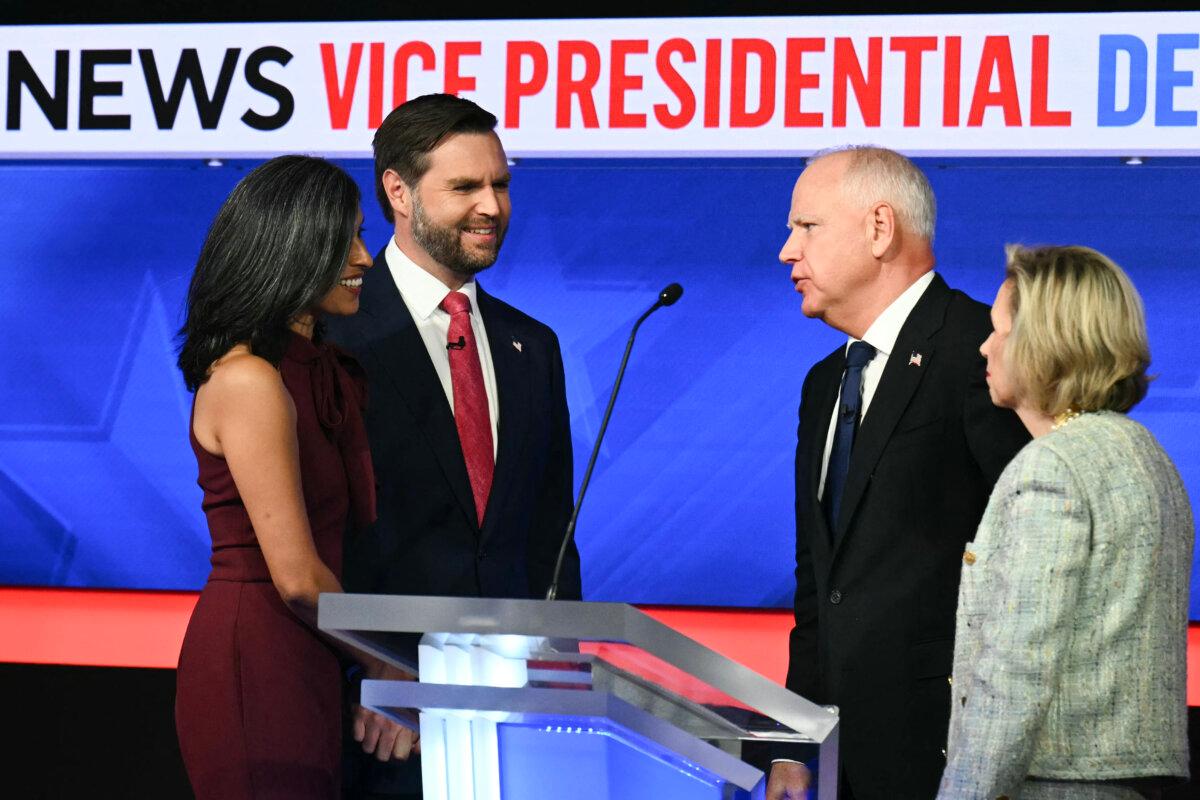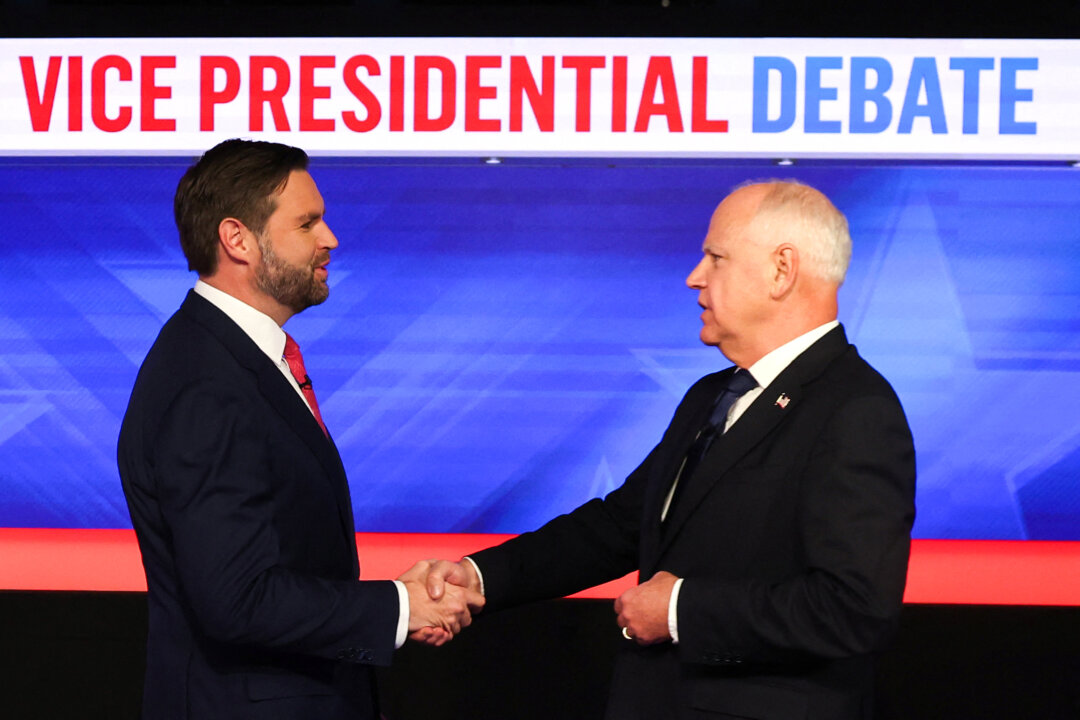The candidates engaged in a spirited debate and revealed starkly different visions of the path forward.
Analysis
Vice presidential candidates Sen. JD Vance (R-Ohio) and Minnesota Gov. Tim Walz engaged in a cordial yet spirited debate on Oct. 1. Both conceded a measure of agreement with the other on some policies, though each presented a vastly different picture of the present reality and the path to a better future.
The candidates met in New York for their first and only debate. Throughout the 90-minute event, each worked to present himself as relatable to the audience.
“I recognize a lot of Americans don’t know who either one of us are,” Vance said during his first turn at the podium. He went on to speak of his early life in a working-class family, his mother’s struggle with addiction, his military service, and attending college on the GI Bill.
Walz described his middle-class, Midwestern roots. “I grew up in small, rural Nebraska, town of 400, a town that you rode your bike with your buddies till the street lights come on,” he said. Walz spoke about joining the National Guard at age 17 and later becoming a school teacher.
The debate was focused on a policy-driven agenda ranging from strategies for U.S. involvement in the Middle East to housing, health care, gun violence, and the state of American democracy.
Though the debate was at times lively, the candidates found opportunities to agree on policy goals, though their strategies for reaching them diverged widely.
Similar Ends, Different Means
When discussing solutions to the problem of school shootings, Vance expressed sympathy after hearing that Walz’s son had witnessed a shooting.
Yet the candidates differed on how to solve the problem. Vance cited a number of factors, including the mental health crisis and the availability of illegal weapons. He said, “I think the answer is, and I say this not loving the answer … that we have to increase security in our schools.”
Walz acknowledged the need for increased availability of mental health care, but said, “I think what we end up doing is we start looking for a scapegoat. Sometimes it just is the guns.”
Similarly, the two agreed on the need for more affordable housing but not on the means to provide it.
Speaking of Vice President Kamala Harris’s plan to provide $25,000 in down payment assistance for first-time home buyers and a $10,000 tax credit, Walz said, “We don’t have enough naturally affordable housing, but we can make sure that the government’s there to help kick start it.”
Vance said boosting the construction industry would help alleviate the problem. “[W]e have a lot of federal lands that aren’t being used for anything,” Vance said. “[T]hey could be places where we build a lot of housing. And I do think that we should be opening up building in this country, we have a lot of land that could be used.”
Attacking the Top of the Ticket
Both candidates engaged in attacks, but they were mostly directed toward their opponent’s running mate. Walz said he agreed “with a lot of what Sen. Vance said about what’s happening. His running mate, though, does not, and that’s the problem.”
During a discussion of illegal immigration, Vance said to Walz, “I actually think I agree with you. I think you want to solve this problem, but I don’t think [Vice President] Kamala Harris does.” Vance blamed Harris for increases in illegal immigration and drug and arms trafficking, and for enabling Iran to fund terrorism by waiving U.S. sanctions that had frozen billions in Iranian funds.
In a discussion of the state of American democracy, Walz and Vance had their most direct and contentious exchange. Walz described the events of January 6, 2021, as a threat to democracy for which Trump was responsible. Vance said Harris was responsible for government censorship of information, which was a threat to democracy.
“[Donald Trump] is still saying he didn’t lose the election. I would just ask that. Did he lose the 2020 election?” Walz said.
Vance countered, “Did Kamala Harris censor Americans from speaking their mind in the wake of the 2020 COVID situation?”
“That is a damning non-answer,” Walz said.
“It’s a damning non-answer for you to not talk about censorship,” Vance said.
Contrasting Visions
Throughout the 90-minute exchange, the candidates offered contrasting visions for America. Those visions were cast in stark relief by their closing statements.

Vance said the problems America faces in the economy, illegal immigration, and energy production point to the need for change. “[W]e have the greatest country, the most beautiful country, the most incredible people anywhere in the world. But they’re not going to be able to achieve their full dreams with the broken leadership we have here in Washington,” Vance said. “We need change, we need a new direction, we need a president who has already done this once before and did it well.”
Walz touted the Biden administration’s record on manufacturing, renewable energy, and infrastructure and advocated for Harris’s “opportunity economy” policy agenda. The governor invited viewers to join Harris’s diverse coalition and leave behind politics based on fear. “We don’t need to be afraid … Kamala Harris is bringing us a new way forward. She’s bringing us a politics of joy,” he said.

